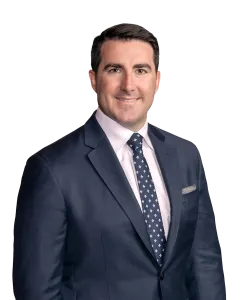Supreme Court to Hear US Government in FCA Scienter Oral Argument
Headlines that Matter for Companies and Executives in Regulated Industries
Supreme Court to Hear US Government in FCA Scienter Oral Argument
On March 20, 2023, the US Supreme Court agreed to allow the federal government to participate in oral argument in the Supreme Court’s review of the Seventh Circuit Court of Appeals’ interpretation of scienter requirements of the False Claims Act (FCA) in two, now consolidated, FCA cases against Safeway Inc. and SuperValu Inc. The government seeks to overturn the Seventh Circuit rulings that the retail chains made “objectively reasonable” interpretations of ambiguous policy in the “usual and customary” prices they offered to Medicare and Medicaid for generic drugs.
In 2021 and 2022, the Seventh Circuit found that the retail chains made objectively reasonable determinations of ambiguous regulatory guidance regarding “usual and customary” pricing and that they were not warned away by authoritative guidance, even if their interpretations had been wrong, thus concluding that they had not acted with scienter. The FCA scienter requirement states that defendants must have acted with knowledge of the falsity of their claims or at least with deliberate ignorance or reckless disregard for the truth. The issues in the Seventh Circuit cases rested on whether an FCA defendant who subjectively believed, or at least “had strong reason to believe,” that a claim they made was false could be considered not to have acted “knowingly” if they could show that their claim “was consistent with an incorrect but objectively reasonable interpretation of those legal requirements,” according to the government.
Following the Seventh Circuit decision, the FCA whistleblowers, or relators, more than 30 state attorneys general, and the federal government all argued to the Supreme Court that the Seventh Circuit “turned the law on its head” and ignored subjective intent in determining scienter. In addition, the government argued that “limited resources and administrative complexity make it impossible to address every potential ambiguity that motivated attorneys might later identify.” Oral argument for the case is set for April 18, 2023.
The cases are U.S. ex rel. Thomas Proctor v. Safeway Inc., case number 22-111 and U.S. ex rel. Tracy Schutte et al. v. SuperValu Inc. et al., case number 21-1326, before the Supreme Court.
Ericsson to Pay $207 Million Over DPA Breach
Swedish telecom company, Ericsson, pleaded guilty to Foreign Corrupt Practices Act (FCPA) violations and was ordered to pay $206.7 million for breaching the cooperation and disclosure terms of a 2019 deferred prosecution agreement (DPA). Ericsson will be required to serve a term of probation through June 2024 and accept a one-year extension of the term of their independent compliance monitor under the DPA.
In 2019, Ericsson entered into a DPA over worldwide bribery and slush fund schemes involving high-level executives and paid over $1 billion to the US Department of Justice (DOJ) and US Securities and Exchange Commission (SEC). According to court documents, Ericsson used third-party agents and consultants from 2000-2016 to make bribe payments to government officials, amounting to millions of dollars, in order to obtain lucrative deals and to manage off-the-books slush funds in Djibouti, China, Vietnam, Indonesia, and Kuwait.
Ericsson falsified books and records and engaged the agents through sham contracts and paid them pursuant to false invoices. Following the imposition of the DPA, Ericsson breached the terms of the agreement by failing to truthfully disclose all evidence and allegations of misconduct related to the Djibouti and China schemes, as well as other potential FCPA anti-bribery, accounting violations, and allegations of misconduct in Iraq.
The case is USA v. Ericsson, case number 1:19-cr-00884, in the US District Court for the Southern District of New York.
NY Man Pleads Guilty to $1.9 Million Baby Formula Fraud Scheme
Amidst the US national baby formula shortage, a New York man pleaded guilty to defrauding insurance plans and medical suppliers by fraudulently procuring specialty baby formula. According to court documents, Vladislav Kotlyar, of Staten Island, obtained prescriptions and medical records for infants who were prescribed specialty baby formula and forged those prescriptions in order to obtain more formula, which was paid for by health insurance. Kotlyar also fabricated issues with the shipments of the formula by falsely claiming the formula was damaged or incorrect in order to obtain additional formula. During the 2022 national baby formula shortage, Kotlyar and his co-conspirators submitted over $1.9 million in fraudulent formula claims to health insurers. Kotlyar has agreed to forfeit $1 million, pay over $738,000 in restitution, and faces a maximum penalty of 20 years in prison.
Read the DOJ press release here.
Contacts
- Related Practices





